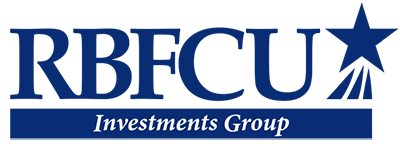Women and Investing: What You Might Want to Know
When it comes to investing, women often face unique challenges. From wage gaps to career breaks, there are many factors that can make investing seem daunting. However, with the right knowledge and strategies, women can take control of their financial future with more confidence.
.jpg?sfvrsn=6489b2a8_4)
In recent years, experts have pointed to rising financial confidence among women, especially among younger generations. Yet accomplished women of all ages who have accumulated significant assets may feel uneasy about long-term investment and retirement planning.
If that situation is familiar to you, then listen in as we talk about women and investing with two RBFCU Investments Group financial advisors, Karen J. Reinertson, CRPC® and Danielle D. Thompkins.
Investing as a journey
Most people know that planning and saving early is best, but women may still hold back, either worried that they don’t know enough to do it well or thinking that they should wait until the economic outlook is more favorable.
That’s understandable, albeit a little shortsighted, according to Thompkins.
“When the market went down with the pandemic, I saw great opportunities emerge. Generally speaking, if you get into investing while the market is down, you're buying lower. There can be deals to be had," she said.
But that doesn’t necessarily mean you should resist investing after the market rebounds.
“When the market is up,” said Thompkins, “you’re buying higher, but remember, with investing, you're working toward success over the long term. Overall, whenever you choose to buy and assuming you give your investment enough time to mature, odds are good that you could see favorable returns."
Reinertson agreed, adding that she actively encourages women to take control of their finances. "It's never too late to become a good saver, but you have to focus on it. You have to work at it. If you're behind the curve or a late starter, you'll have to save more, sure — but don’t let that stop you, either."
Keeping the momentum up in a slowdown
Maybe you're an experienced investor, but now you’re wondering what you could do to reduce losses in less-than-perfect economic conditions.
Although she stipulates that mature women may need to make the pivot to more conservative investment strategies in an economic downturn (more on that in a moment), Reinertson generally encourages women to stay brave with their investing.
"No financial advisor ever recommends getting out of the market just because there are a few bumps in the road," she said. "If you've made the commitment to invest, it’s typically wise to take a wait-and-see approach until the end.”
"Investing in the stock market is a roller coaster. Don't worry about the journey; worry about your destination. Sending money to your future self, that's what saving for retirement is about."
Because staying in the market is usually a wise strategy, Reinertson advises resisting the temptation to obsessively monitor your investments, charting every up and down move. If it's not yet time to retire when the market is taking a slide, she encourages investors to take fluctuations in stride.
Special considerations
So, what if you are a mature woman close to retirement age or have other specific financial concerns (e.g., medical costs, college tuition to pay)?
For support and guidance, Reinertson encourages having a heart-to-heart with your financial advisor about your unique needs. "There are other financial instruments you can use and perhaps other solutions available to you."
Thompkins added that there are many tools clients can use to meet their goals. She likes to use the metaphor of buckets, suggesting women keep money in, for example, a 401(k), savings accounts and investments simultaneously.
"Pay yourself first. You need an emergency fund that helps you sleep at night, and anything over that, you invest. That way, you have different buckets of money to choose from, depending on the conditions and your needs at any given time."
"You can get through anything if you have a plan," she added, "and when we work with our clients, all of that is factored into the plans."
What often holds women back
Most women know they should be planning and saving, so what is holding back the nearly two-thirds of women who don't see themselves as investors?
Thompkins thinks fear is the biggest factor.
“People are afraid of what they don’t understand,” she said, “and a lot of women unfortunately figure, ‘I’ll just let my partner handle it.’”
That's why she sees a lot of her role as a financial advisor is to demystify finances, spending time to determine a client's current understanding of investing and tailoring her explanations to help individual women start where they are with bespoke targets. "I explain in detail, ‘This is what you have; this is what you can expect.’"
Reinertson points out that facing those fears is important. That's because, when it comes to couples in their later years, about 70% of the surviving spouses she sees are female. "Most of the money in this world is going to end up in the hands of women. They need to know how to handle that before they have to handle it. Women are no longer just their partners’ sidekicks; they are equal partners and need to handle it equally.”
Learn from the professionals
As it happens — and contrary to popular opinion, women are slightly better, as a group, at realizing their investment goals.
In fact, as a group, women tend to have an edge in investing partly because they are more likely to do research and obtain professional advice. That pays off in more than just financial success, too. Many women report that working with a professional relieves a lot of the stress that money worries can cause.
"Knowledge is power,” said Reinertson. “Know where your money is going and what you're spending it on."
Taking the first step to schedule a meeting with a financial advisor — be it in person, over the phone or online — can be critical and one need not worry too much about what to bring. Start by first building the relationship. Go slow. Ensure compatibility with a prospective financial advisor first. If it’s a good fit, then a relationship that develops over time with steady, regular interaction can be instrumental to your long-term financial success, come rain or shine.




